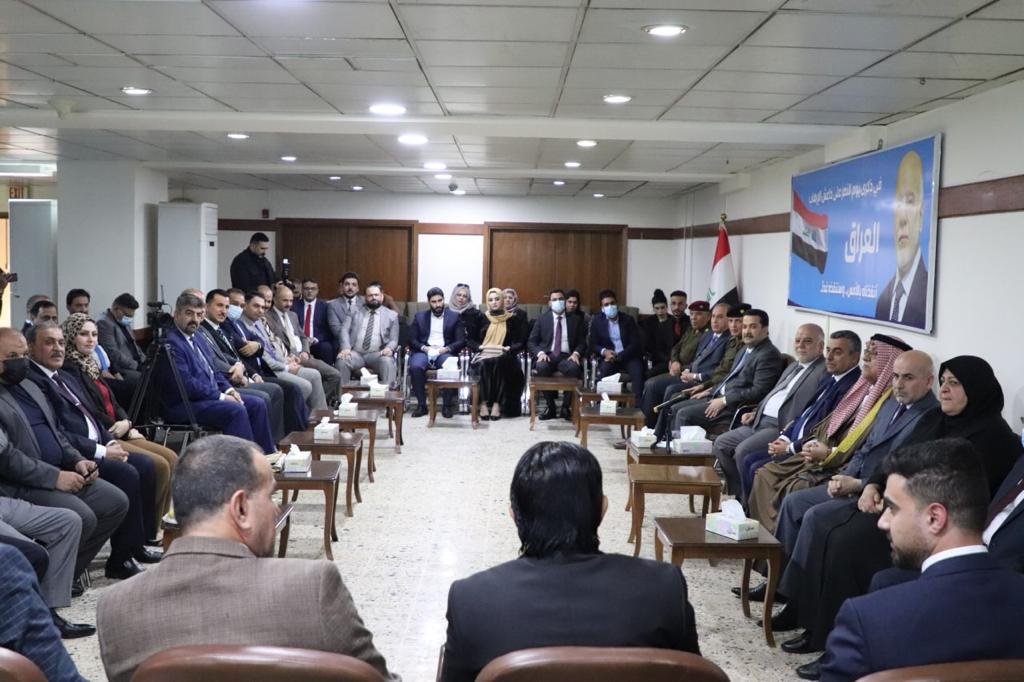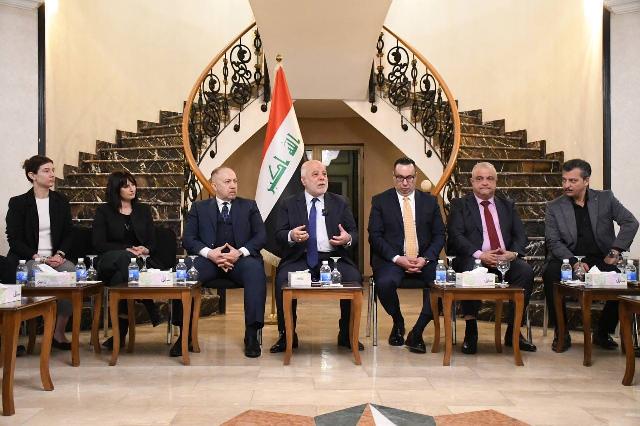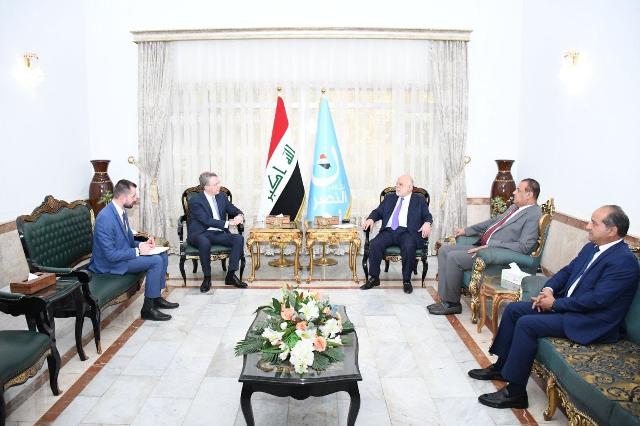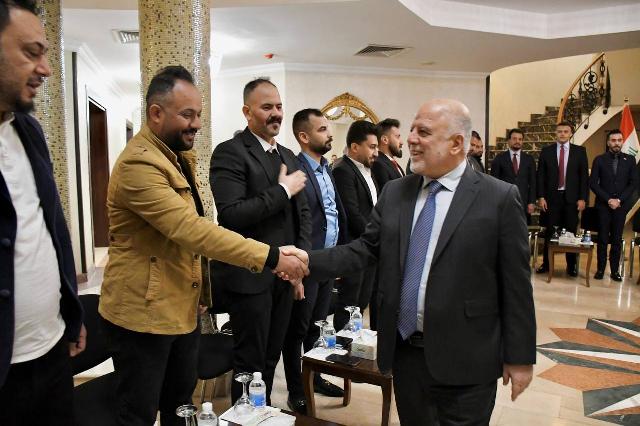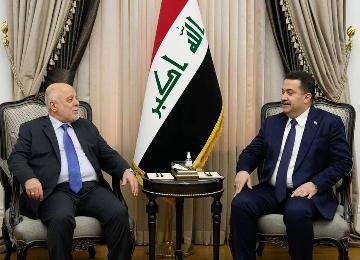Yesterday, Sunday, the head of Al Nasr Coalition, Dr. Haider al-Abadi, received well-wishers on the occasion of the fourth anniversary of achieving victory over terrorism, which he announced on December 10, 2017.
The session was attended by a group of military leaders, members of Al Nasr, ministers and former officials in the government of Dr. Al-Abadi, which led the war against the forces of evil and darkness "ISIS".
The reception began with the recitation of Qur’an and the recitation of Surat Al-Fatihah on the souls of the heroic martyrs of Iraq of all kinds of combat, who contributed with their blood and everything they possessed in order to defend their country, then the national anthem were heard and poetry about victory and the spirit of belonging to the country and defending it, as well as heroic epics for the sacrifices made during the war against ISIS, whether with the blood of the martyrs or the grief and patience of their families.
After that, Dr. Al-Abadi delivered a speech in which he said: "When we talk about victory, we talk about the value of sacrifice, giving and martyrdom for the sake of God, which means defending values, ideals, and people's interests. Without sacrifice, what has been achieved would not have been achieved." He also mentioned the corruption that we suffer from today, saying: "Corruption was one of the most important reasons for the collapse against ISIS, and today, after 4 years, it is back. The struggle for power leads to division and scramble for narrow interests, with which people's interests are lost".
Dr. Al-Abadi warned of any economic setback that may occur in the event of dependence on oil only, as there is no guaranteed future in that wealth, and multiple resources must be found to support it.
He concluded his speech by saying: "We can rise again by uniting the efforts of the active forces in the political scene, and through the availability of giving, vision, determination and will".
While former Defense Minister Khaled Al-Obaidi reviewed, in his speech, the battles and the role of military leaders led by Dr. Al-Abadi in achieving victory, which seemed impossible in the expectations of many, praising the brave fighters from the security forces and the popular mobilization, expressing his hope for the political class to move towards forming the next government.
Then the word was passed on to the former Secretary-General of the Council of Ministers, Mr. Mahdi Al-Alaq, who cited the great ability and big responsibility of Dr. Al-Abadi in making victory and progressing calmly in all responsibilities. He mentioned how al-Abadi did not allow any proposal to reduce the salaries of employees, which were threatened with suspension; he granted powers and gave decisions to manage the daily sustenance of employees, by stopping waste and limiting spending to urgent and necessary issues only.
Qassem al-Fahdawi, Minister of Electricity in the government of al-Abadi, who had the next word, referred to the post-liberation phase, recalling two things, the first in Anbar, when a cabinet meeting was held in a tent in the city of Ramadi after its liberation, and how that became a strong incentive to raise the morale of officials in the province and increase hope in the administration of the state and its leader. The second matter was in Nineveh, when important procedures were taken, including the rapid return of electricity and street lighting to the stricken city; to support its reconstruction efforts.
Then the Minister of Higher Education and Scientific Research, Dr. Abdul Razzaq Al-Issa spoke about the financial positions in the administration of Dr. Al-Abadi and its strictness in placing expenditures in the necessary place, and cutting non-essential spending in order to provide support for the war and the market.
After that, the speech was given to Baghdad Operations Commander in the 2014-2018 government, Lieutenant-General Jalil Al-Rubaie, who spoke about how he assumed his position, as he had no knowledge of Dr. Al-Abadi, who adopted professional standards in the search for a security figure to take that important position, at that time. He said that Dr. Al-Abadi was following up on his work daily and communicating with him, at the same time giving powers and independent management in daily affairs.
The former Minister of Health, Dr. Adela Hammoud recalled how medical operations were conducted on the front lines, and despite the lack of sufficient financial capabilities, Dr. Al-Abadi directed towards investing the necessary public buildings and converting them into hospitals. Al-Abadi's government has taken care of emergency funding and rehabilitation of hospitals and health centers in all the newly liberated areas.
Finally, retired Lieutenant- General Abdul-Hussein al-Amiri spoke about the important role of the tribal mobilization in contributing to support the armed forces on the ground.
The attendance of the commemoration ceremony was limited to a small number of guests and members of the Al Nasr Coalition in Baghdad due to the Corona pandemic.


